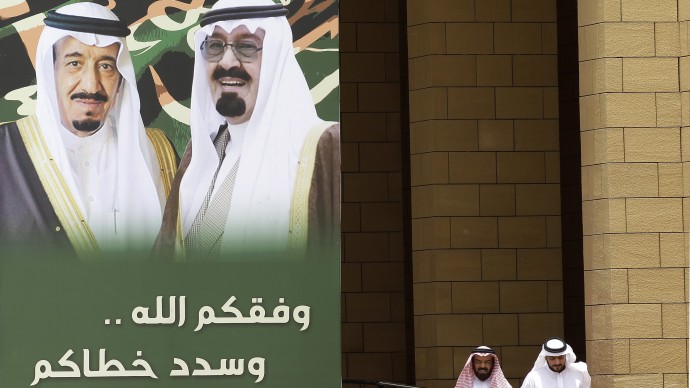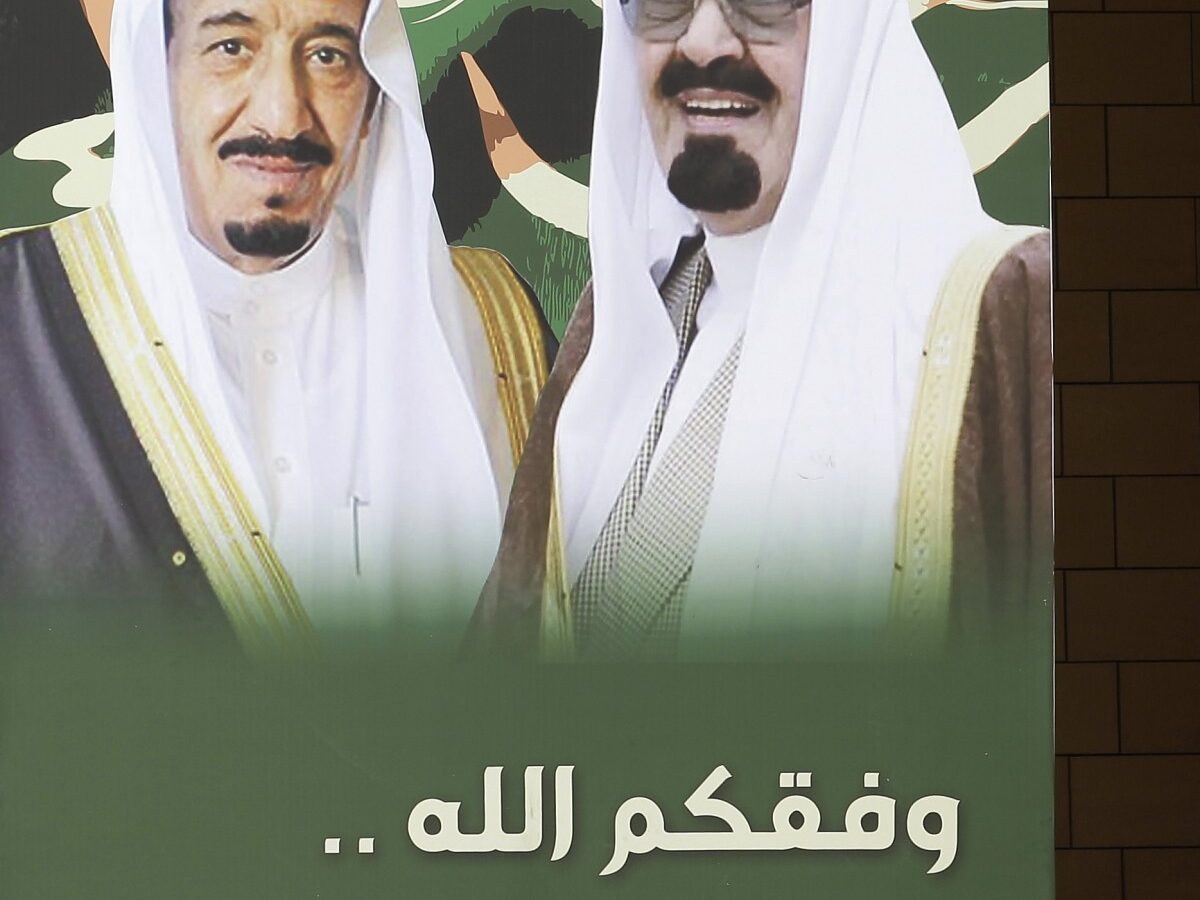
(MintPress) – Two men were reported killed on Monday after protests erupted in the oil-rich Eastern Province of Saudi Arabia following the arrest of prominent Shiite cleric, Sheikh Nimr al-Nimr. The deaths of the two men follow some of the biggest protests in the region since November and December last year – a reminder the anti-government protests that swept the region during the Arab Spring are still sporadic across Saudi Arabia.
A statement from an Interior Ministry spokesman confirmed the deaths, saying they occurred following a protest in the village of Awamiya over the arrest of Nimr. The spokesman claimed there was no clash between protesters and police, however, amateur video footage showed live gunshots being fired into the seemingly peaceful crowd.
“In the aftermath of the arrest…a limited number of people have assembled in the town of Awamiya,” the Interior Ministry said in a statement to Reuters. “Gun shots have been overheard in random areas of town. However, there was no security confrontation whatsoever.”
Nimr, an outspoken Shiite cleric who vehemently opposes the strict government, was chased, shot and arrested on Sunday. His arrest sparked demonstrations in the cities of Qatif and Awamiya. Hussain al-Alk, a staffer at the Adala Center for Human Rights, said that organizers called for mass demonstrations in solidarity with Nimr following the evening prayer.
Hundreds of demonstrators took to the streets in Alk’s hometown of Qatif after Nimr’s arrest – the largest demonstration seen there since late last fall when at least six demonstrators were shot and killed.
According to the official Saudi Press Agency, Nimr was arrested after his vehicle crashed into a police vehicle and fire was exchanged with security forces. The Agency said that Nimr was shot in the thigh and was arrested on charges of instigating unrest in the region.
Nimr has previously been detained in 2004 and 2006 and was wanted by authorities because of his boisterous calls for more rights for a minority of Shiites living predominantly in the Eastern Province of Saudi Arabia. In 2009, Nimr upset the government again by talking about forming a succession movement unless the government released political prisoners, ended discrimination against Shiites and took steps to end corruption.
A sectarian divide?
Al-Alk, a rights activist in Qatif, said he believed the government arrested Nimr because of pressure from influential Sunnis to increase its crackdown on the Shiite opposition. “It seems that in the last month the government became too worried. The Sunnis have started saying, ‘Why when the Sunnis are talking against the government you are arresting him immediately, while Shiites, you are not doing anything to him’,” Alk told Al Jazeera.
Shiite Muslims make up roughly 15 percent of Saudi Arabia’s population, the majority residing in the Eastern Province where the largest oil field in the world is located. Saudi Arabia’s Shiite minority has been historically oppressed and barred from political activity.
Shiites say they are unable to obtain jobs in government or universities, their neighborhoods are not developed and their places of worship are frequently shut down; the government denies charges of discrimination.
The oppression of Shiites living in Saudi Arabia has led to what many see as a secular conflict resulting in escalating protests in the region over the past year. While the government’s harsh crackdown on protests have prevented demonstrations in the country from equaling the magnitude of those in Egypt or Tunisia, small and sporadic demonstrations continue to take place in the Eastern Province.
Fearing that a Shiite uprising may widen Iran’s influence in the region, the government ordered the arrest of 23 Shiites in the Eastern Province in January, all of whom were accused of being responsible for unrest that had lead to shootings and protests in the previous weeks.
Some analysts believe the Kingdom has been able to ward off a Saudi spring among Sunni residents by announcing increased government spending on civil services. “But although this largesse has temporarily mollified Saudi Sunnis whose chief grievances revolve around poor schools and affordable housing,” writes the Telegraph, “it has failed to pacify the marginalized Shiite communities in the east.”
Dissent in Saudi Arabia is not completely divided among religious factions in the Eastern Province, however, considering some of the recent acts of opposition in the Kingdom have come from other parts of the country.
Earlier this year, a man in Saudi Arabia’s southwestern region of Jinaz set himself on fire, mimicking the self-immolation of Tunisian Muhammad Bouazizi, whose suicide sparked the beginning of the Arab Spring.
In a separate event, hundreds of Saudi women protested against discrimination and mismanagement at the King Khalid University in Abha. At least 50 women were reportedly injured when security forces and religious police intervened. A “flash mob” protest also erupted at a shopping mall in Riyadh in June to demand the release of political prisoners.
Vulnerability in the House of Saud
The recent clashes in the Eastern Province come at a time of vulnerability in the Saudi Royal Family. Although U.S. relations with the Kingdom remain ironclad in spite of the unrest, a series of deaths in the family expose other vulnerabilities for the House of Saud.
With the death of former Crown Prince Nayef in March, Saudi Arabia appointed its third crown prince in just eight months. King Abdullah himself is believed to be at least 90-years-old, leaving many questions about the royal family’s line of succession.
Crown Prince Nayef was known for his conservative views on reform and security. Nayef opposed many of the king’s reforms and was mainly concerned with security and creating a strong defense against Shiite-dominated Iran.
The appointment of Defense Minister Prince Salman as crown prince was seen by Reuters as a sign that King Abdullah’s cautious reforms will continue. Yet Jane Kinninmont, a senior research fellow at London-based Chatham House think tank, believes the appointment of the new crown prince will not necessarily bring reforms to the Eastern Province.
The crown prince is likely to be judged based on how efficiently and effectively he is able to quiet dissent in the country. The same is true of recently appointed Interior Minister, Ahmed bin Abdulaziz. According to Kinninmont, the arrest of Nimr may be a sign of even more crackdowns to come. “It’d be too early to expect much of a difference. If anything, the direct targeting of Sheik Nimr represents an escalation,” she said.


